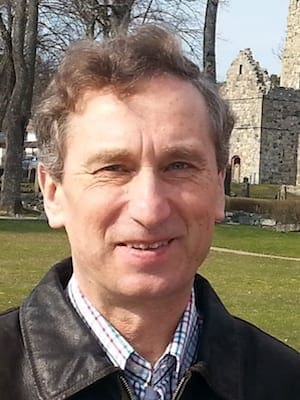Situated between Romania and Ukraine, Moldova is a country with 3.5 million people.
The nation is comprised of several ethnic groups – 75 percent are Moldavians speaking the Romanian language; the others are Ukrainian, Russian, Gagauz (Turkish), Jewish and Roma people.
The predominant religion is Eastern Orthodox Christianity. The capital and largest city is Chisinau.
Moldova is a rural country. Its exceptionally fertile soil is among the best in Europe.
An irony is that in spite of its great potential, Moldova is among the poorest countries in Europe.
More than 1 million Moldavians are the work migrants scattered all over the Russian-speaking world and in Western Europe or the U.S.
The Baptist Union of Moldova has experienced excellent growth since the country gained independence in 1991, and the number of Baptists has doubled.
The Baptists have enjoyed freedom to preach the gospel, train leaders and carry out fruitful missionary activities. Numerous indigenous leaders are actively involved in planting new Baptist congregations.
Some of them have been supported by the European Baptist Federation (EBF). They are exceptionally dedicated and very practical in their ministry.
Genadie and his wife, Diana, are EBF-facilitated church planters living in Bardar, a town on the border of Chisinau.
They arrived three years ago, and the beginning was not easy for them. The locals were suspicious and didn’t even greet them. Despite that, Genadie and Diana kept trying to make friends with local people.
They have successfully attracted new people, and many young people have shown genuine interest.
Genadie invites local youth to get involved in sport activities like taekwondo, soccer or volleyball. Later, they continue with evangelistic Bible studies and socialize.
Last July, Genadie organized a weeklong sport camp for 90 participants. During these camps, they typically have some sport activities, Bible studies and teaching about creationism as well as a proper sexual behavior.
Genadie admits that, thanks to such actions, his authority among locals has significantly grown, even to an extent that he has been elected to a town council.
He and Diana emphasize that growing young leaders is the first priority in their ministry. Until now, four leaders from Bardar have been trained and are able to lead Bible studies.
The couple now feel that Bardar is their home.
Another Baptist church planter named Gheorghi works in Obreja Veche – a village of significant size located in the Balti region (north of Moldova).
He is very much dedicated to Christian ministry and recently organized a Bible course for teenagers. About 30 attended and some parents were attracted as well and started attending these meetings.
Some teenagers who have come to the meeting are getting ready to be baptized. Gheorghi is considering the possibility of sending them to a Bible school where they could also learn some practical skills, such as using computers or repairing cars.
Three couples are good friends with the missionary family and part of the mission team.
Besides organizing Bible teaching, they also do social ministry like distribution of coal to heat homes in winter and clothes to poor people who can’t afford it.
Gheorghi and his family feel at home in this village and are eager to continue the ministry.
Veaceslav, another EBF-supported church planter, has worked in Cojusna for the last four years, having been sent by the mother church, Jesus the Saviour from Chisinau.
He struggled in the beginning as a newcomer in Cojusna, but thanks to the cooperation with EBF he has found his place in ministry.
Besides typical Sunday services, Veaceslav organizes youth meetings for around 20 people who regularly watch films and discuss them afterward.
He says that the group has been growing and believes that God will lead him further and will show new contacts as well as develop local partnerships.
These Baptist church planters in Moldova are highly dedicated and have excellent influence on local people.
They use appropriate methods of ministry and attract many new people. They also successfully make friends with new contacts and try to disciple those who are willing to grow spiritually.
The Baptist Union, in cooperation with other mission partners, makes productive efforts to send indigenous church planters to villages where there is a spiritual potential.
Daniel Trusiewicz is mission partnerships coordinator at the European Baptist Federation. A version of this news article first appeared on the EBF website and is used with permission. You can follow EBF on Twitter @EBFNews.

